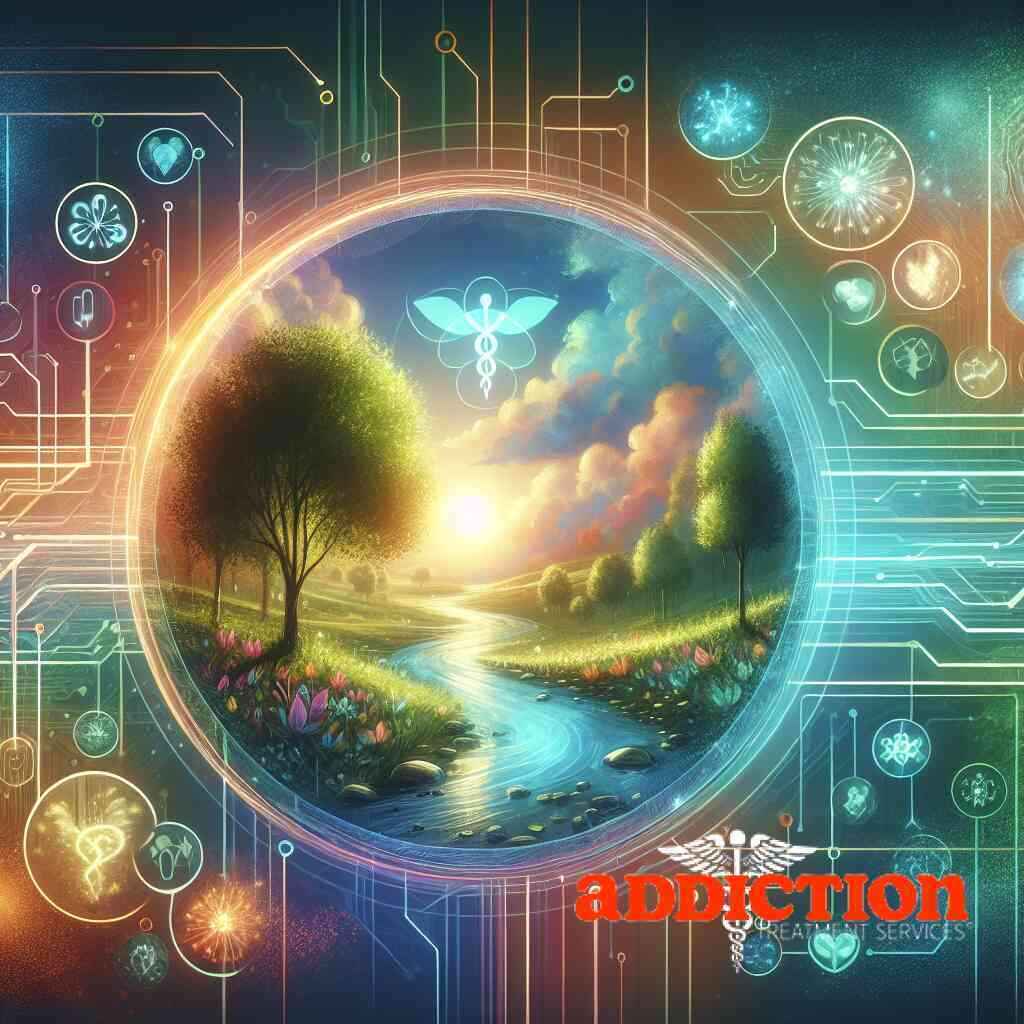 Posted On: 07/10/2024
Posted On: 07/10/2024Introduction
Understanding Sugar Addiction
Sugar addiction is a compelling urge to consume sweet foods or beverages, often leading to excessive intake and numerous health problems. Just like dependence on substances such as caffeine, nicotine, or alcohol, sugar addiction activates the reward and pleasure centers in the brain, fostering a cycle of craving, binging, and withdrawal. The growing body of research suggests that for some individuals, quitting sugar requires more than just willpower; it necessitates a comprehensive approach that addresses both the physical and psychological aspects of addiction.
The Role of Stress Hormones in Sugar Cravings
Stress plays a significant role in intensifying sugar cravings. When stressed, the body releases hormones such as cortisol and adrenaline, which can lead to an increase in sugar cravings as part of a fight-or-flight response. Subsequently, consuming sugar prompts the release of dopamine, the “feel-good” neurotransmitter, temporarily enhancing mood and providing relief from stress. However, this cycle can lead to increased dependency on sugar to manage stress, underscoring the importance of stress management techniques in breaking sugar addiction. Engaging in regular exercise is a proven method to reduce stress and, by extension, diminish sugar cravings, as it helps in decreasing levels of ghrelin, the hunger hormone, and improves sleep quality.
The Objective of Overcoming Sugar
The end goal of overcoming sugar addiction is not merely to cut down on sugar intake but to establish a healthier relationship with food and improve overall well-being. By understanding the underlying causes of sugar cravings, individuals can develop strategies to address these issues without resorting to sugar. This journey involves a comprehensive approach that includes adjusting dietary habits, incorporating physical activity, employing stress management techniques, and seeking support when needed. Achieving freedom from sugar addiction promises a host of health benefits, from weight loss and reduced risk of chronic diseases to improved energy levels and emotional health.
Identifying Signs of Sugar Addiction
Recognizing Emotional Eating and Sugar Cravings
Emotional eating often precedes a sugar addiction, where individuals consume sugary foods not out of hunger but as a response to various emotions such as stress, sadness, or boredom. Recognizing this pattern is crucial in breaking the sugar addiction cycle. Sugar cravings, distinct from hunger, are intense desires for sweet foods and can be both a cause and a result of emotional eating. Addressing the root emotional triggers and finding healthier coping mechanisms are essential steps towards recovery. A strategy might include consulting experts from Addiction Treatment Services to develop personalized coping strategies and treatment plans.
Physical and Psychological Effects of Sugar
Sugar addiction can have profound physical and psychological effects on an individual’s health. Physically, excessive sugar intake can lead to weight gain, diabetes, and heart disease. Psychologically, it can cause mood swings, irritability, and even depression. Additionally, sugar impacts neurotransmitter levels in the brain, similar to certain drugs, reinforcing the cycle of addiction. Understanding these effects is crucial in motivating individuals to seek treatment and make healthier lifestyle changes. Programs found through Addiction Treatment Services can offer guidance on managing these effects through a combination of dietary changes, therapy, and support groups.
Signs of Withdrawal from Sugar
When reducing sugar intake, individuals may experience withdrawal symptoms, which can be a significant barrier to overcoming addiction. Symptoms can include headaches, irritability, fatigue, and intense cravings for sugary foods. These signs indicate the body’s dependence on sugar and the process of readjusting to lower sugar levels. It’s important to manage these symptoms effectively to prevent relapse. Strategies such as staying hydrated, eating balanced meals, and engaging in moderate exercise can help alleviate these symptoms. Seeking support through resources can also provide individuals and the community with the tools needed to navigate through the withdrawal phase successfully.
Starting Your Sugar Detox Plan
Setting Realistic Goals for Reducing Sugar Intake
When preparing to break free from sugar addiction, setting realistic and achievable goals is a critical first step. Start by assessing your current sugar intake and then set a clear, quantifiable target for reduction. For example, if you’re used to having three sugary treats a day, aim to cut down to one within the first week. Incorporate gradual changes to avoid the shock of sudden sugar deprivation, which can lead to intense cravings and potential relapse. Documenting your daily intake and progress can also provide motivation and a sense of accomplishment. Remember, the journey to overcoming sugar addiction is a marathon, not a sprint. Patience and perseverance are key to adapting to a lifestyle with reduced sugar consumption.
Choosing Healthy Sugar Alternatives
Finding healthy alternatives to sugar is essential for satisfying sweet cravings without derailing your detox plan. Instead of reaching for foods high in processed sugars, opt for natural sweeteners like stevia or honey in moderation. Incorporating fruits into your diet is another excellent way to enjoy sweetness, providing the added benefits of fiber, vitamins, and minerals that processed sugars lack. When craving desserts, look for recipes that rely on the natural sweetness of ingredients like bananas or dates. Nutrition and Recovery from Sugar Habituation involves understanding that not all sweet tastes need to be eliminated-just swapped for healthier options that don’t spike your blood sugar levels or contribute to addiction.
Creating a Sugar Withdrawal Timeline
Understanding the timeline of sugar withdrawal can help manage expectations and prepare for the journey ahead. Typically, symptoms of sugar withdrawal begin within 24 to 48 hours after reducing sugar intake and can last up to two weeks. These symptoms may include headaches, irritability, fatigue, and intense sugar cravings. By creating a timeline, you can anticipate these challenges and strategize ways to cope. For instance, during the first week, focus on staying hydrated, getting enough sleep, and engaging in light exercise to ease withdrawal symptoms. It’s also helpful to remove temptations from your environment by cleaning out your pantry of sugary snacks. Equip yourself with a variety of coping mechanisms, such as mindfulness meditation or calling on a friend for support, to navigate through tough moments. Remember, each day without succumbing to sugar cravings is a step closer to breaking the addiction cycle.
By following a thoughtful and measured approach to reducing sugar intake, you can set the foundation for a successful detox and a healthier, sugar-free lifestyle. Remember to leverage all available resources, such as Addiction Treatment Services, for support and guidance throughout your journey.
Nutrition Therapy for Sugar Addiction
Incorporating Balanced Meals into Your Diet
Creating a balanced diet is a foundational step in overcoming sugar addiction. By focusing on meals that incorporate a mix of proteins, fats, and complex carbohydrates, you can stabilize blood sugar levels and reduce the intense cravings commonly associated with sugar dependency. Proteins and healthy fats are especially vital as they provide a longer-lasting source of energy, keeping you satiated and less likely to reach for sugary snacks. Complex carbohydrates, such as those found in whole grains, vegetables, and fruits, offer a steady release of energy without the spikes and crashes associated with refined sugars. Incorporating a diverse range of whole foods into your meals ensures that your body receives essential nutrients, fostering both physical health and emotional well-being during the recovery process. Resources like Addiction Treatment Services can offer guidance on integrating nutrition therapy into your overall treatment plan.
Understanding the Role of Natural Sweeteners
In the journey to break sugar addiction, it’s beneficial to understand how natural sweeteners can play a role in your diet. At the same time, it’s crucial to reduce overall sweetness to recalibrate your taste buds and decrease dependence on sugary tastes. Natural sweeteners like stevia, erythritol, xylitol, and monk fruit offer an alternative that doesn’t impact blood sugar levels as significantly as refined sugar does. These sweeteners provide the sweetness many desire but with fewer calories and a lower glycemic index. However, they should be used in moderation. Over-reliance on sweet tastes, even from natural sources, can perpetuate cravings for sugar. Knowledge about natural sweeteners and their proper use is an essential component of nutrition and recovery from sugar addiction, allowing for a smoother transition away from sugar without feeling deprived of enjoyable tastes.
Nutrition and Recovery from Sugar Addiction
Nutrition plays a critical role in the recovery from sugar addiction. A nutrient-rich diet supports the body’s healing process, replenishing deficiencies that may have occurred due to excessive sugar consumption. It’s important to focus on foods that aid in detoxification and inflammation reduction, like leafy greens, berries, nuts, and seeds, as these can help mitigate withdrawal symptoms and promote better mental health. Moreover, a diet high in fiber from vegetables and whole grains can help regulate digestion and blood sugar levels, further reducing cravings. Engaging in nutrition therapy for addiction is not merely about substituting one source of sweetness for another; it’s about adopting a holistic approach that encompasses all aspects of well-being – physical, emotional, and psychological. Embracing a comprehensive nutritional strategy not only assists in overcoming sugar addiction but also lays the groundwork for a lifelong commitment to healthier eating habits and overall wellness.
Behavioral Changes and Relationship with Food
Mindful Eating Practices
Integrating mindful eating practices into your daily routine is a powerful step toward overcoming sugar addiction. This involves paying full attention to the eating experience and noticing the tastes, textures, and sensations of your food. By eating slowly and without distraction, you train yourself to recognize natural signals of hunger and fullness, which can reduce instances of emotional eating and the automatic reach for sugary treats. Mindful eating encourages a deeper appreciation for nutritious foods, diminishing the need for artificially sweetened alternatives. Engaging in practices such as keeping a food diary can also enhance mindfulness, helping you become more aware of when and why you consume sugar, thus empowering you to make healthier choices.
Managing Cravings for Sugar Through Lifestyle Changes
Lifestyle changes are fundamental in managing sugar cravings effectively. Incorporating regular physical activity into your schedule can significantly diminish the urge for sugary snacks by stabilizing blood sugar levels and enhancing mood through the release of endorphins. Prioritizing sleep is another critical aspect; inadequate sleep can lead to increased cravings for high-sugar foods as the body seeks quick energy sources. Creating a healthy routine, including meal planning with an emphasis on whole foods, ensures you have nutritious alternatives available, reducing the likelihood of sugar binging. Introducing hobbies and interests that occupy your mind and hands can also distract from cravings, offering a substitute way to find pleasure and relaxation. Seeking support for overcoming sugar dependency through structured programs or groups can provide additional motivation and accountability, helping solidify these lifestyle changes.
Emotional Regulation and Coping Strategies
Effective management of sugar addiction necessitates the development of emotional regulation and coping strategies that don’t involve food. Recognizing the emotional triggers that lead to sugar consumption-such as stress, boredom, or sadness-is the first step. Once aware, you can implement alternative methods to address these feelings, such as deep breathing, meditation, or journaling. Engaging in regular physical activity not only acts as a stress reliever but also improves overall mental health, making it easier to manage emotional triggers. Building a strong support network, including friends, family, or members of a support group, provides a safety net for moments of vulnerability. Additionally, professional counseling or psychotherapy for addiction can uncover deeper emotional issues linked to sugar addiction, facilitating a more profound healing process. By cultivating these coping mechanisms, you can navigate the emotional landscape without resorting to sugar, fostering a healthier relationship with food and yourself.
Support Systems and Recovery Services
Leveraging Addiction Recovery Services
The path to overcoming sugar addiction can be complex and challenging, necessitating a multifaceted approach that includes establishing a robust support system. Addiction Recovery Services offers a comprehensive range of services tailored to address the unique needs of individuals struggling with sugar addiction. By contacting Addiction Recovery Services, you gain access to a team of professionals who can guide you through the necessary steps for effective detoxification and long-term recovery. These services are designed not only to help you navigate the withdrawal phase but also to equip you with the strategies and tools needed to maintain a sugar-free lifestyle. From counseling and nutritional guidance to support groups and behavioral therapy, leveraging these resources can significantly enhance your chances of success.
Participating in Support Groups for Sugar Addiction
Support groups play a pivotal role in the recovery process from any addiction, including sugar addiction. They provide a platform where individuals can share experiences, challenges, and successes with others who understand what they’re going through. Participating in support groups for sugar addiction offers emotional comfort and morale support, creating a sense of community and belonging that is often lost in the throes of addiction. Groups such as Alcoholics Anonymous meetings for sugar recovery may not directly address sugar addiction. Still, they offer a framework for understanding addiction’s power and the strength found in communal support. Additionally, specific sugar addiction recovery groups can be found online or through local health services, offering specialized guidance and support tailored to overcoming this particular challenge.
Family and Friends as Pillars of Support
The support of family and friends is invaluable in overcoming sugar addiction. They can offer encouragement, hold you accountable, and provide a listening ear or shoulder to lean on during challenging times. Open communication with your loved ones about your goals, struggles, and needs can help them understand the best ways to support you. Activities that promote bonding without revolving around food, such as outdoor adventures, games, or working on a project together, can also reinforce these relationships and distract from cravings. Encouraging family members and friends to join you in healthier eating habits or to support your participation in treatment programs can further cement their role as pillars of your support system. In the end, having a strong network of support not only boosts your motivation but also enriches your journey towards recovery, making the process more manageable and less isolating.
By fully engaging with addiction recovery services, participating in supportive groups, and leaning on the encouragement of family and friends, individuals struggling with sugar addiction can find the strength and resources needed to embark on a successful path to recovery.
Relapse Prevention and Long-Term Management
Identifying and Addressing Triggers
Breaking a sugar addiction encompasses more than just resisting the craving for sweets; it involves understanding what triggers these cravings in the first place. Triggers can be emotional, such as stress or sadness, or situational, like social events or certain times of the day. Identifying these triggers is the first step toward managing them effectively. Once recognized, strategies like stress management techniques, emotional regulation skills, and avoiding high-risk situations can be implemented. Engaging in activities that promote relaxation and happiness without relying on sugar can also help in addressing these triggers. Resources such as Addiction Recovery Services in California for sugar detox can offer guidance on identifying and managing triggers specific to sugar dependency.
Developing a Personalized Relapse Prevention Strategy
Creating a personalized relapse prevention strategy is crucial in the journey to break free from sugar addiction. This plan should encompass coping mechanisms that address both emotional and physical cravings, lifestyle modifications to support a sugar-free life, and a support system to reach out to when vulnerabilities emerge. Incorporating healthy eating habits, regular exercise, and sufficient sleep are essential components of this strategy. Additionally, setting realistic expectations and being prepared for moments of weakness will help you navigate through them successfully. Documenting progress, celebrating milestones, and continuously reassessing the plan are also vital steps. For more insights on structuring an effective strategy, refer to Relapse Prevention in Sugar Dependence.
Consistent Follow-ups and Adjustments to Treatment Plan
Consistent follow-ups and adjustments to the treatment plan are necessary to maintain long-term recovery from sugar addiction. Regular check-ins with a healthcare provider, nutritionist, or therapist can help assess progress, address any emerging challenges, and refine strategies as needed. It’s important to remain flexible and open to adjusting the plan based on what’s effective and what’s not. As recovery progresses and personal growth occurs, nutritional needs, emotional coping mechanisms, and life circumstances may also change, requiring the treatment plan to evolve. Engaging in ongoing education about nutrition and addiction recovery, such as resources found at Support Systems for Sugar Addiction Recovery, can provide valuable information and support to adapt the treatment plan for sustained success in overcoming sugar addiction.
Conclusion
Summarizing the Journey Toward Sugar Addiction Recovery
Breaking free from sugar addiction is a multifaceted journey that requires understanding the root causes of addiction, recognizing signs of dependency, and implementing strategic dietary and lifestyle changes. Through the careful integration of nutrition therapy, mindful eating practices, and support systems, individuals can navigate the complex path of recovery. The process begins with acknowledging the powerful role stress hormones play in sugar cravings and continues with setting realistic goals for reducing sugar intake, adopting healthy sugar alternatives, and engaging in behaviors that transform one’s relationship with food. Moreover, leveraging addiction recovery services and support groups introduces a community aspect to recovery, ensuring individuals do not face their challenges alone. The path to sugar addiction recovery is not linear; it involves continuous learning, adaptation, and self-compassion.
The Importance of Holistic Treatment for Sugar Addiction
The journey emphasizes the importance of a holistic approach to overcoming sugar addiction. Holistic treatment encompasses not just the physical aspects of addiction but also the psychological and emotional facets. It is essential to address underlying emotional eating patterns and develop coping strategies for stress and emotional regulation.^1 By incorporating a broad spectrum of treatment modalities, from dietary changes to behavioral therapy and lifestyle adjustments, individuals can achieve a more sustained recovery. Holistic treatment acknowledges the complexity of addiction and provides a comprehensive framework for healing, leading to deeper, more lasting change.
Maintaining a Sugar-Free Lifestyle for Improved Health and Well-being
Maintaining a sugar-free lifestyle involves persistent effort and a deep commitment to one’s health and well-being. It’s about making conscious choices every day that align with a sugar-free life, from selecting nutritious foods that support physical health to engaging in activities that foster mental wellness. ^2 Creating a supportive environment, reevaluating coping mechanisms, and staying connected with a supportive community is crucial for long-term success. Ultimately, overcoming sugar addiction and embracing a sugar-free lifestyle offer profound benefits, including enhanced physical health, improved mental clarity, and a greater sense of overall well-being. It’s a transformative journey that empowers individuals to reclaim control over their health and life.
Breaking sugar addiction is a challenging yet rewarding journey that leads to numerous health benefits and a profound sense of accomplishment. By engaging with the holistic treatment options available and leveraging the support systems in place, individuals can successfully navigate the path to recovery. Maintaining a sugar-free lifestyle requires continuous dedication, but the payoff in terms of health and well-being is immeasurable, fostering a richer, more fulfilling life.
Frequently Asked Questions
Question: How does Addiction Treatment Services approach breaking sugar addiction?
Answer: At Addiction Treatment Services, we take a comprehensive and holistic approach to breaking sugar addiction. Understanding that sugar addiction is both a physical and psychological challenge, we offer a range of services, including addiction recovery services, nutrition therapy for addiction, and counseling to address the root causes of addiction. Our tailored plans incorporate strategies for overcoming sugar cravings, managing withdrawal symptoms, and making sustainable lifestyle changes to quit sugar. With experts in addiction treatment, nutrition, and behavioral therapy, we are committed to providing the support and resources necessary for a successful sugar detox plan and long-term recovery.
Question: What kind of support can someone expect from joining support groups for sugar addiction through Addiction Treatment Services?
Answer: Joining support groups for sugar addiction through Addiction Treatment Services offers individuals a nurturing and understanding environment where they can share experiences, challenges, and achievements. Participants will find emotional comfort and moral support, gaining invaluable insights from others who are navigating the same journey to overcoming sugar cravings. Our support groups are facilitated by professionals who ensure a constructive and supportive dialogue, enabling members to learn effective coping strategies, holistic treatment for sugar addiction, and relapse prevention strategies for sugar addiction. This communal approach fosters a sense of belonging and motivation, significantly enhancing the recovery process.
Question: Can you provide specific examples of behavioral changes for sugar addiction that Addiction Treatment Services recommends?
Answer: Addiction Treatment Services emphasizes the importance of tangible behavioral changes for sugar addiction recovery. Key recommendations include engaging in mindful eating practices to understand and curb emotional eating and sugar addiction; incorporating regular physical activity to manage cravings and improve mental health; prioritizing sufficient sleep to reduce the temptation for high-sugar foods; and adopting nutrition and recovery strategies that focus on balanced meals with healthy sugar alternatives. Each of these behavioral changes is crucial for establishing a healthier relationship with food and reducing sugar intake, supported by our holistic addiction treatment services and personalized counseling.
Question: In the blog ‘How to Break Sugar Addiction?’, stress management techniques are mentioned. How do Addiction Treatment Services integrate these into their programs?
Answer: In our programs at Addiction Treatment Services, stress management techniques are integrated as a core component of sugar addiction recovery. Recognizing the link between stress hormones and sugar cravings, we offer a variety of stress reduction methods, including mindfulness meditation, therapy sessions for emotional regulation, and physical activities that serve as natural stress relievers. These strategies are woven into both our addiction treatment services and our holistic treatment plans, ensuring that clients develop effective coping mechanisms to manage stress without resorting to sugar. Our goal is to empower individuals with the tools they need to maintain a healthy, sugar-free lifestyle while also improving their overall mental health.
Question: What makes Addiction Treatment Services stand out for those seeking assistance with sugar addiction and mental health?
Answer: Addiction Treatment Services stands out due to our comprehensive and integrative approach to addressing sugar addiction and its relation to mental health. We recognize that overcoming sugar addiction goes beyond dietary changes, requiring attention to psychological well-being and emotional resilience. Our programs combine addiction recovery services, nutrition and recovery education, and mental health services to offer a well-rounded recovery experience. With a team of professionals specializing in substance misuse, behavioral health services, and nutrition therapy for addiction, we are uniquely positioned to support those struggling with sugar addiction and mental health, offering pathways to recovery that are both sustainable and empowering.




